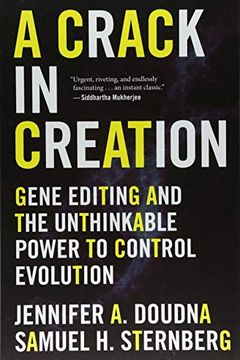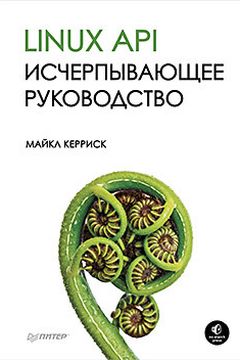Julia Evans
Рекомендованные Книги
Julia Evans is a software engineer and writer who creates Wizard Zines, a series of easy-to-read online magazines that explain technical software topics. Julia’s zines include “Linux Debugging Tools”, “Help! I Have A Manager!”, and recently “HTTP: Learn your browser’s language”.
4 книг в списке
Сортировать по
Сначала последние рекомендации
Макет
Учитесь извлекать максимум пользы из унаследованных систем, повышая их производительность, функциональность, надежность и сопровождаемость!
Можете ли вы без особого труда изменить код и тут же получить ответную реакцию на внесенные изменения? Насколько понятен этот код? Если вы ответите на эти вопросы отрицательно, значит, вы имеете дело с унаследованным кодом и понапрасну тратите время и средства на разработку.
В своей книге Майкл Физерс предлагает полноценные стратегические приемы эффективной работы с крупными базами унаследованного нетестированного кода. В основу этой книги положен материал, подготовленный автором к известным семинарам, организуемым компанией Object Mentor, включая приемы, которым автор обучил сотни разработчиков, технических руководителей и тестирующих программное обеспечение подчинять себе непослушные унаследованные системы.
В этой книге освещаются следующие вопросы:
Представление о механизмах внесения изменений в программное обеспечение, включая ввод новых свойств, устранение программных ошибок, улучшение структуры кода, оптимизацию производительности.
Перенос унаследованного кода в средства тестирования.
Написание тестов, препятствующих внесению новых ошибок в код.
Применение методов, подходящих для любого языка или платформы, с примерами кода на Java, C++, C и C#.
Точное выявление мест в коде, где требуется внести изменения.
Работа с унаследованным кодом, который не является объектно-ориентированным.
Обращение с приложениями, у которых, на первый взгляд, нет вообще никакой структуры.
Кроме того, в этой книге представлены 24 способа разрыва зависимостей, помогающих работать с элементами программного обеспечения обособленно, чтобы сделать внесение изменений в код более безопасным.
Julia Evans
2022-03-12T18:17:48.000ZThe Linux Programming Interface is the definitive guide to the Linux and UNIX programming interface—the interface employed by nearly every application that runs on a Linux or UNIX system.In this authoritative work, Linux programming expert Michael Kerrisk provides detailed descriptions of the system calls and library functions that you need in order to master the craft of system programming, and accompanies his explanations with clear, complete example programs.You'll find descriptions of over 500 system calls and library functions, and more than 200 example programs, 88 tables, and 115 diagrams. You'll learn how to: Read and write files efficiently Use signals, clocks, and timers Create processes and execute programs Write secure programs Write multithreaded programs using POSIX threads Build and use shared libraries Perform interprocess communication using pipes, message queues, shared memory, and semaphores Write network applications with the sockets API While The Linux Programming Interface covers a wealth of Linux-specific features, including epoll, inotify, and the /proc file system, its emphasis on UNIX standards (POSIX.1-2001/SUSv3 and POSIX.1-2008/SUSv4) makes it equally valuable to programmers working on other UNIX platforms.The Linux Programming Interface is the most comprehensive single-volume work on the Linux and UNIX programming interface, and a book that's destined to become a new classic.
Praise for The Linux Programming Interface
"If I had to choose a single book to sit next to my machine when writing software for Linux, this would be it." Martin Landers, Software Engineer, Google
"This book, with its detailed descriptions and examples, contains everything you need to understand the details and nuances of the low-level programming APIs in Linux . . . no matter what the level of reader, there will be something to be learnt from this book." Mel Gorman, Author of Understanding the Linux Virtual Memory Manager
"Michael Kerrisk has not only written a great book about Linux programming and how it relates to various standards, but has also taken care that bugs he noticed got fixed and the man pages were (greatly) improved. In all three ways, he has made Linux programming easier. The in-depth treatment of topics in The Linux Programming Interface . . . makes it a must-have reference for both new and experienced Linux programmers." Andreas Jaeger, Program Manager, openSUSE, Novell
"Michael's inexhaustible determination to get his information right, and to express it clearly and concisely, has resulted in a strong reference source for programmers. While this work is targeted at Linux programmers, it will be of value to any programmer working in the UNIX/POSIX ecosystem." David Butenhof, Author of Programming with POSIX Threads and Contributor to the POSIX and UNIX Standards
". . . a very thorough—yet easy to read—explanation of UNIX system and network programming, with an emphasis on Linux systems. It's certainly a book I'd recommend to anybody wanting to get into UNIX programming (in general) or to experienced UNIX programmers wanting to know 'what's new' in the popular GNU/Linux system." Fernando Gont, Network Security Researcher, IETF Participant, and RFC Author
". . . encyclopedic in the breadth and depth of its coverage, and textbook-like in its wealth of worked examples and exercises. Each topic is clearly and comprehensively covered, from theory to hands-on working code. Professionals, students, educators, this is the Linux/UNIX reference that you have been waiting for." Anthony Robins, Associate Professor of Computer Science, The University of Otago
"I've been very impressed by the precision, the quality and the level of detail Michael Kerrisk put in his book. He is a great expert of Linux system calls and lets us share his knowledge and understanding of the Linux APIs." Christophe Blaess, Author of Programmation systeme en C sous Linux
". . . an essential resource for the serious or professional Linux and UNIX systems programmer. Michael Kerrisk covers the use of all the key APIs across both the Linux and UNIX system interfaces with clear descriptions and tutorial examples and stresses the importance and benefits of following standards such as the Single UNIX Specification and POSIX 1003.1." Andrew Josey, Director, Standards, The Open Group, and Chair of the POSIX 1003.1 Working Group
"What could be better than an encyclopedic reference to the Linux system, from the standpoint of the system programmer, written by none other than the maintainer of the man pages himself? The Linux Programming Interface is comprehensive and detailed. I firmly expect it to become an indispensable addition to my programming bookshelf." Bill Gallmeister, Author of POSIX.4 Programmer's Guide: Programming for the Real World
". . . the most complete and up-to-date book about Linux and UNIX system programming. If you're new to Linux system programming, if you're a UNIX veteran focused on portability while interested in learning the Linux way, or if you're simply looking for an excellent reference about the Linux programming interface, then Michael Kerrisk's book is definitely the companion you want on your bookshelf." Loic Domaigne, Chief Software Architect (Embedded), Corpuls.com
Julia Evans
2020-01-12T14:56:13.000ZDiscover the art of zine-making with this comprehensive guide filled with tips and tricks from tools to mailing. Covering layout, copying, printing, trading, promotion, ordering, distribution, and more, the pocket-sized book contains over 150 valuable pages. The latest third edition boasts 32 more pages with distributor listings, stores, and libraries that work with zines. Get inspired to create your unique publication and reach your audience with ease.
Julia Evans
2019-08-28T20:48:41.000Z
A Crack in Creation
Gene Editing and the Unthinkable Power to Control Evolution
Discover the groundbreaking gene-editing tool CRISPR and the ethical implications of manipulating DNA in this book, a finalist for the Los Angeles Times Book Prize. Co-author Jennifer Doudna, a biologist and one of the creators of CRISPR, shares the powerful potential of the technology to cure diseases, but also warns of the unforeseeable consequences and risks that come with rewriting the human genetic code. This book is required reading for every concerned citizen, according to the New York Review of Books.
Julia Evans
2018-07-05T02:05:34.000Z

